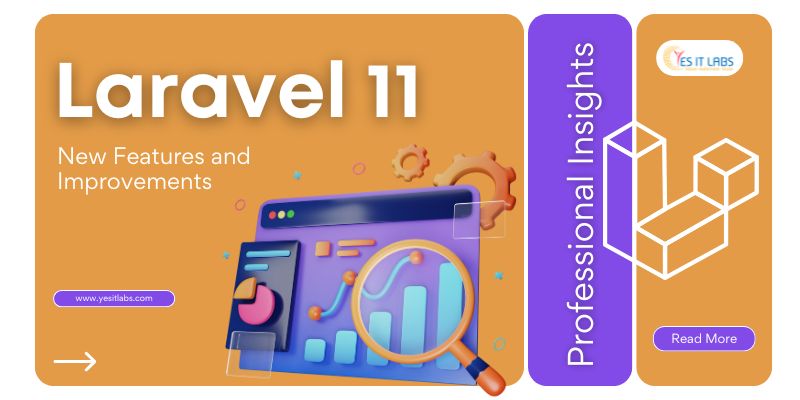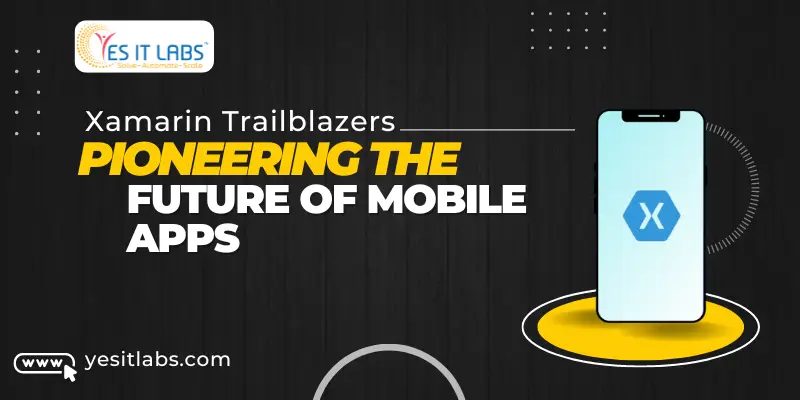
 By Paul Ward
By Paul Ward The Development of Hybrid Mobile Applications: Benefits and Limitations
In today’s tech-driven world, the mobile application market is booming. With smartphones becoming indispensable, businesses and developers are constantly looking for efficient ways to build mobile apps that can reach the widest audience possible. Enter hybrid mobile applications—a solution that promises the best of both worlds. But what exactly are hybrid mobile apps, and what are their benefits and limitations? Let’s dive in.
What are Hybrid Mobile Applications?
Hybrid mobile applications are a blend of web and native applications. Unlike native mobile apps, which are built specifically for a single platform (like iOS or Android), hybrid apps are designed to work across multiple platforms. They are essentially web apps encapsulated in a native app shell, which means they can be downloaded from app stores and have access to device features.
These apps are developed using web technologies like HTML, CSS, and JavaScript and are then wrapped in a native container using frameworks like Apache Cordova or React Native. This allows them to run on various platforms without needing to rewrite the code for each one, making it a preferred choice for many a mobile app development company.
Benefits of Hybrid Mobile Applications
1. Cost-Effective Development
One of the most significant advantages of hybrid mobile apps is cost-effectiveness. Developing separate apps for iOS and Android can be expensive and time-consuming. With hybrid apps, developers can write the code once and deploy it across multiple platforms, significantly reducing development costs and time. This is particularly beneficial for a mobile app development company looking to optimize resources.
2. Faster Time to Market
In the fast-paced world of technology, getting your product to market quickly is crucial. Hybrid apps allow for a quicker development cycle because you only need to develop one codebase. This means you can launch your app on multiple platforms simultaneously, reaching a wider audience faster. Hybrid app development companies often emphasize this benefit to clients looking for rapid deployment.
3. Easy Maintenance
Maintaining a hybrid app is easier compared to native apps. Since there is only one codebase, updating the app and fixing bugs can be done simultaneously for all platforms. This streamlined maintenance process ensures that your app stays current and functional across all devices without the hassle of managing multiple versions.
4. Access to Device Features
Hybrid apps can access device features such as the camera, GPS, and contacts, thanks to plugins and APIs. This capability allows developers to create feature-rich applications that offer a near-native experience to users, making it easier for an Android app development company or an iOS app development company to deliver robust solutions.
5. Improved Performance
In the past, hybrid apps were often criticized for poor performance compared to native mobile apps. However, advancements in technology and frameworks have significantly improved the performance of hybrid apps. Modern hybrid apps can now offer performance levels comparable to native apps, making them a viable option for many applications.
6. Offline Support
Hybrid apps can support offline usage through local storage capabilities. This feature is particularly beneficial for users in areas with limited or unstable internet connectivity, as it allows them to access certain functionalities and data even when offline. This is a major selling point for a mobile app development company aiming to reach users in diverse regions.
7. Wider Reach
By being available on multiple platforms, hybrid apps can reach a broader audience. This inclusivity ensures that your app is accessible to both iOS and Android users, increasing your potential user base and market penetration. Cross-platform mobile apps are ideal for businesses looking to maximize their reach.
Limitations of Hybrid Mobile Applications
While hybrid apps offer numerous benefits, they are not without their limitations. It’s essential to consider these drawbacks when deciding whether a hybrid app is the right choice for your project.
1. Performance Issues
Although hybrid apps have come a long way, they may still lag behind native mobile apps in terms of performance, especially for resource-intensive applications like games or apps with complex animations. The reliance on web technologies can sometimes result in slower performance and responsiveness.
2. Limited Access to Native Features
While hybrid apps can access many device features, they may not have full access to all native functionalities. Some advanced features or integrations might be challenging to implement, leading to a compromise in the user experience.
3. User Experience Challenges
Creating a seamless user experience on both iOS and Android can be challenging with hybrid apps. Each platform has its design guidelines and user expectations, and it can be difficult to create a user interface that feels native to both environments. This can result in a less intuitive and polished user experience compared to native apps.
4. Dependency on Third-Party Frameworks
Hybrid app development relies heavily on third-party frameworks and libraries, which can be a double-edged sword. While these tools simplify development, they also introduce dependencies that can lead to issues if the framework is not well-maintained or becomes outdated.
5. Security Concerns
Security is a critical concern for any application. Hybrid apps, due to their web-based nature, might be more vulnerable to certain types of attacks compared to native apps. Developers need to be extra cautious and implement robust security measures to protect user data and ensure app integrity.
6. Debugging Difficulties
Debugging hybrid apps can be more complex than debugging native apps. Issues can arise from the web code, the native wrapper, or the interactions between them, making it harder to pinpoint and resolve problems. This can lead to longer development cycles and potential delays in-app updates.
When to Choose Hybrid Mobile Applications

Given the benefits and limitations, it’s important to consider when a hybrid app might be the best choice for your project. Here are a few scenarios where hybrid apps are particularly advantageous:
- Limited Budget and Time: If you have a limited budget and need to get your app to market quickly, hybrid development can save both time and money.
- Simple to Medium Complexity: For apps with simple to medium complexity, hybrid apps can provide a good balance of performance and cost-efficiency.
- Cross-Platform Need: If your target audience is split between iOS and Android users, hybrid apps can help you reach both without developing separate apps.
- Frequent Updates: If your app requires frequent updates, the single codebase of a hybrid app can make maintenance and updates more manageable.
- Offline Access: For apps that need to function offline or with limited connectivity, hybrid apps can be a suitable choice due to their local storage capabilities.
Popular Hybrid App Frameworks
Several frameworks are available for developing hybrid mobile applications. Here are a few of the most popular ones:
1. React Native
Developed by Facebook, React Native is one of the most popular frameworks for building hybrid apps. It uses JavaScript and allows developers to create mobile apps that feel and perform like native applications. React Native has a large community and extensive documentation, making it a solid choice for many developers and mobile app development companies.
2. Flutter
Flutter, developed by Google, is another powerful framework for building hybrid apps. It uses the Dart programming language and provides a rich set of pre-designed widgets to create beautiful and high-performing apps. The flutter hot-reload feature speeds up the development process by allowing developers to see changes in real time, a big plus for any hybrid app development company.
3. Ionic
Ionic is a popular framework that uses web technologies like HTML, CSS, and JavaScript to build cross-platform mobile apps. It offers a library of mobile-optimized UI components and tools for building high-quality apps. Ionic can be combined with frameworks like Angular, React, or Vue.js for additional flexibility.
4. Xamarin
Owned by Microsoft, Xamarin is a robust framework for developing hybrid apps. It allows developers to use C# and .NET to create apps for iOS, Android, and Windows. Xamarin provides a near-native performance and extensive access to native APIs, making it a reliable choice for many enterprise-level applications, often preferred by an Android app development company or an iOS app development company.
Future of Hybrid Mobile Applications

The future of hybrid mobile applications looks promising. As technology continues to evolve, hybrid frameworks will become more powerful and efficient, bridging the gap between web and native app development. Here are a few trends to watch for:
1. Improved Performance
With ongoing advancements in hybrid frameworks and web technologies, the performance of hybrid apps will continue to improve. This will make hybrid apps an even more attractive option for developers and businesses looking to build high-performing mobile applications.
2. Enhanced User Experience
Frameworks like React Native and Flutter are already making it easier to create visually appealing and responsive apps. As these tools evolve, developers will have more resources to create seamless user experiences that rival native apps.
3. Greater Access to Native Features
Future hybrid frameworks will likely offer more extensive access to native device features, further narrowing the gap between hybrid and native apps. This will enable developers to build more complex and feature-rich applications without sacrificing performance or user experience.
4. Increased Adoption
As the benefits of hybrid app development become more apparent, more businesses will adopt this approach. The cost savings, faster time to market, and simplified maintenance will drive increased adoption across various industries.
Conclusion
Hybrid mobile applications offer a compelling solution for businesses and developers looking to create cross-platform apps efficiently. While they come with certain limitations, the benefits of cost-effectiveness, faster development, easier maintenance, and wider reach make them an attractive option for many projects. By understanding the strengths and weaknesses of hybrid apps, you can make an informed decision on whether this approach is right for your next mobile application.
As technology continues to advance, hybrid app development will only become more powerful and versatile, opening up new possibilities for creating innovative and impactful mobile experiences. Whether you’re a startup looking to make a quick splash or an established company aiming to reach a broader audience, hybrid mobile applications could be the key to your success.
Tags: Android App Development Company, Cross Platform Mobile Apps, Flutter, Hybrid App Development company, iOS app development Company, mobile app development, mobile app development company, Native Mobile Apps, React Native, XamarinLatest Resources
Wix vs WordPress: Comprehensive Features and Pricing Guide
October 30, 2024
How Long Does Mobile App Development Really Take?
October 28, 2024
Laravel 11: New Features and Improvements
October 24, 2024
Odoo Website Builder: The Ultimate Tool for Non-Developers
October 22, 2024












 Services
Services

